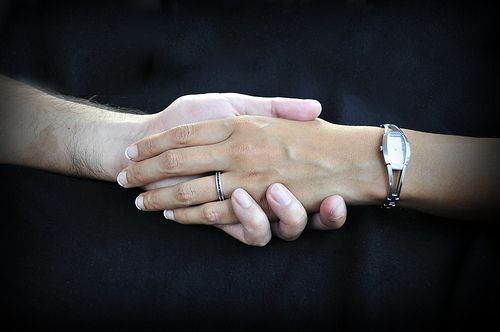Masters and Johnson, The “Sexual Pioneer” Couple Behind “Masters of Sex” TV Series, Were "Brilliant" But Aloof To One Another

With the new Masters of Sex TV series set to premiere on Showtime on September 29, many may wonder what the personalities of the two main characters — the team of revolutionary sex pioneers, Masters and Johnson — were really like.
While creative and forward-thinking in their research and sex therapy work, in their own relationship the two were often seen as distant or aloof. They ultimately divorced in their old age. Ruth Clifford, a clinical psychologist who worked with the couple for five years, told USA Today that though the two were different, they also shared characteristics like being temperamental and having "big personalities."
Their stories begin in the 1950s and 60s, when talk of sex was still considered taboo, and very little medical or educational guidance on human sexual behavior existed. It was in 1965 that Dr. William Masters, an obstetrician-gynecologist, hired Virginia Johnson as his assistant to undertake a research project on human sexuality. Johnson was a student at Washington University in St. Louis at the time, hoping to earn a degree in sociology. While she never earned her degree in the end, she was trained in medical research in Masters’ laboratory, and ultimately contributed a great deal to Masters’ research on the physiology of human sexuality.
Their relationship turned from professional to intimate, and in 1971, Masters divorced his first wife to marry Johnson. Their marriage lasted 22 years before their own divorce in 1992. Masters passed away in 2001, and Johnson died recently in July of 2013, at the age of 88.
One of the most well-known aspects of their research work was the development of the four stages of the human sexual response: the excitement phase, the plateau phase, orgasm, and resolution phase. The couple referred to this as the “human sexual response cycle.” Masters and Johnson observed and studied some 700 volunteers willing to take part in sexual intercourse in their laboratory, and developed a clinical approach to treating sexual problems and disorders.
They created their own nonprofit research organization that was eventually called the Masters and Johnson Institute, aiming mostly at the study of the anatomy and physiology of human sexual response. The institute closed when Masters retired in 1994.
The new TV series airing this month will try to capture not only the relationship between Masters and Johnson, but also the sexual revolution that swept through that time period, as well as the medical world’s acceptance of human sexuality as a science. Joanne Ostrow of The Denver Post describes the show as “engrossing, beautifully cast,” and pins it as “the tale of an odd couple and the story of a culture coming of age.”
Though Johnson did not have a degree, it was her people skills and pragmatic approach to sexuality that brought the team balance. "Masters alone would never have designed a successful sex therapy program,” Dr. Robert Kolodny, a retired physician who had worked with the couple, told USA Today. “He needed [Virginia's] contribution and balance and better 'people sense' to pull that one off.”
Thomas Maier, author of Masters of Sex, which was the basis for the new TV series, provides insight into the lives of these two revolutionary, yet very different, individuals. "Virginia would not say 'I'm a feminist,'” Maier told USA Today. "She was a very independent-minded woman at a time where women were overwhelmingly dominated by male power. She was a woman without a degree who was literally transforming medicine's view about women's sexuality."



























